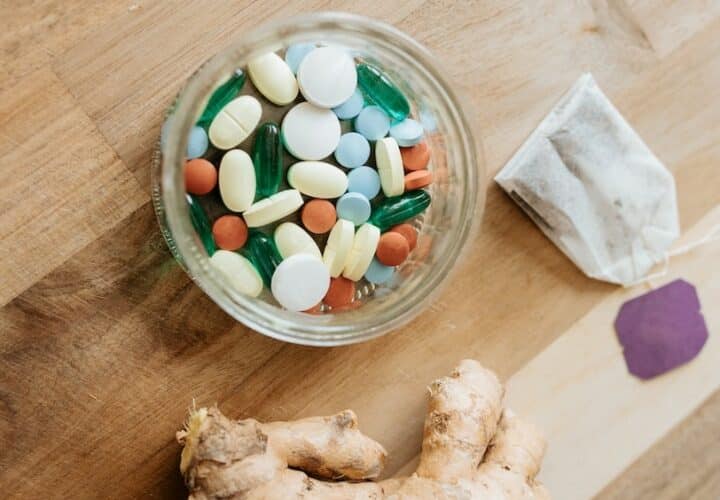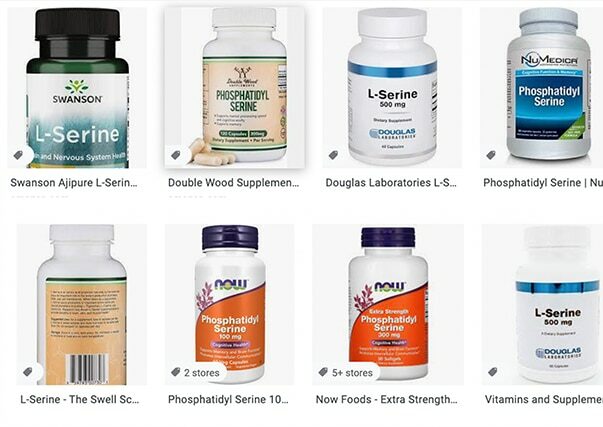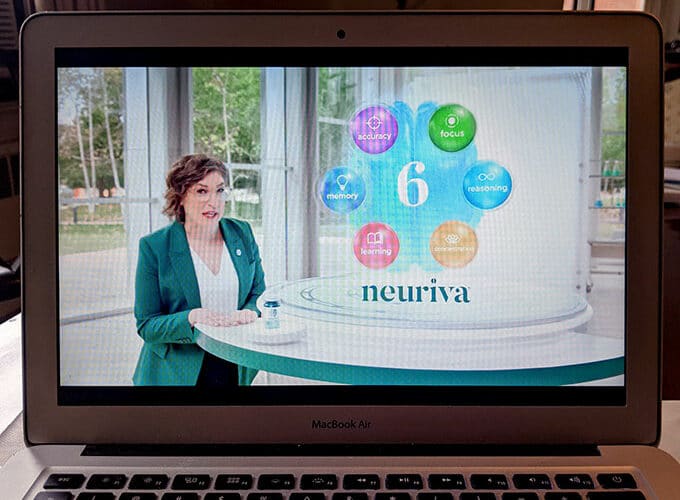While there is a lack of evidence supporting the use of natural supplements for Alzheimer's disease, experts share best practices for those who are still keen on trying them.
Alzheimer’s disease is a progressive disorder without a cure. While there are drugs which treat many of the symptoms — brain fog, cognitive impairment, memory loss — they come with side effects.
As a result, many people who are newly diagnosed with Alzheimer’s disease or find that they are at risk of developing it will look for alternatives. Could the wisdom and healing power of natural vitamins and supplements provide another path toward brain health or even slow Alzheimer’s disease?
Pieter Cohen, a physician and researcher at Cambridge Health Alliance regularly speaks with patients considering natural supplements and vitamins. “Sometimes people use these hoping to receive the benefits of something more wholesome and natural,” he said. “At other times, consumers are drawn to them because they are worried about side effects from pharmaceutical drugs.”
Unfortunately, natural supplements and vitamins haven’t proven their effectiveness in studies of brain health, memory, Alzheimer’s disease, or dementia. Due to the lax regulation in the supplement industry, they may actually cause harm to patients instead of helping them. If you are keen on taking supplements, Cohen also provides best practices for buying natural supplements and minimizing the risks.
What does “natural” mean anyways?
There is no legal standard when it comes to calling something a natural supplement or vitamin. “Botanical supplements are not required to be prepared using traditional approaches and often contain medication-like drugs,” Cohen said.
Just because the label says that the ingredients are natural, it doesn’t make them any safer or less potent than actual drugs. Earlier this year, Cohen found that natural brain boosting supplements derived from the mucuna bean contained dangerously high levels of a substance used as a prescription drug for Parkinson’s disease. “When that happens, consumers are exposed to risks just like when one is using prescription medication,” he said.
When you go to the store to buy popular natural supplements like Ginkgo biloba — a plant whose leaves are thought to have medicinal properties that support brain health — it isn’t actually clear what you’re getting. The leaves are processed into a form that can be packaged, stored, and easily ingested. But what happens between the leaves being harvested and the supplements ending up on a grocery store shelf is a mystery.
It may also involve adding in other chemicals or products into the mix. “Sometimes consumers are exposed to novel drugs that have never been approved for use in the US.” In another study, his team found that supplements sold to improve memory contained multiple unlabelled, illicit drugs.
Regulation for vitamins and supplements is the wild west
There are hundreds, maybe thousands of different natural supplements and vitamins in your local health food store or pharmacy. Their colorful labels list a cacophony of ingredients — Ginkgo biloba, ashwagandha, ginseng, resveratrol, omega-3 fatty acids — alongside claims that they improve memory or boost cognitive function.
But these general claims, and even the ingredients on the bottles don’t necessarily need to be accurate before hitting the market as long as these natural vitamins or supplements are allowed to make specific health claims about their efficacy. This is why companies don’t explicitly advertise that their supplement will prevent memory loss in Alzheimer’s disease, ward off dementia, or reduce the build up of protein plaques in the brain.
These standards stem from US legislation enacted in 1994 in response to lobbying efforts from the supplement industry which reclassified nutritional and dietary products — including supplements and vitamins — as food rather than drugs. It meant it was easier to get these products onto the market, fuelling the growth of a supplement and vitamin industry worth an enormous $140 billion worldwide.
You’ve probably heard the mantra that it’s easier to get forgiveness than ask for permission. Similarly, many supplements and vitamins are only regulated retroactively when lawsuits challenge demonstrably false claims or the product is proven unsafe. Neuriva Plus settled a lawsuit last year barring them from making false claims about their products’ cognitive and memory boosting effects. Just one year prior to this, another brain-boosting supplement called Prevagen settled a class-action lawsuit for making unfounded scientific claims.
Should you take natural supplements and vitamins?
There are plenty of individual studies done in mice, rats, or sometimes humans that make claims about the abilities of various natural supplements and vitamins to treat Alzheimer’s disease, dementia, memory loss, or cognitive impairment. However, a lot of findings in mice and rats don’t translate to humans and a lot of studies in humans aren’t high-quality, controlled or randomized.
“I am not aware of any large, high-quality study that demonstrates that any botanical supplement improves memory or cognitive function,” said Cohen. Looking across research into different types of supplements and vitamins, it becomes clear that there aren’t very many studies conducted in healthy elderly people, let alone in people with Alzheimer’s disease, dementia, memory loss, or cognitive impairments.
Cohen does not recommend any of these supplements to his own patients but he does provide advice in case they are still keen on trying them. “Purchasing a supplement that lists only one plant on the label and does not make claims such as ‘supports brain health’ is key,” he said. “That’s because there is no requirement that claims like that need to be supported by clinical studies demonstrating efficacy.” He added that the supplement should also be USP certified, which indicates that all the ingredients listed on the label are accurate.
Evidence for different supplements and vitamins
Creatine
Athletes use creatine supplements to help their muscles mobilize stores of energy. Researchers are looking into whether this naturally-occurring store of energy could benefit the aging brain. Several studies have found that people with cognitive impairment. Alzheimer’s disease, and dementia have impairments in brain metabolism.
But there are only two randomized clinical studies looking at the effects of creatine in healthy adults over the age of 60 which have found mixed results. More research is currently underway to determine whether creatine supplements can make a difference — boosting memory and preventing cognitive impairment in older individuals.
Fish oils
Fish oils, sometimes called omega-3 poly-unsaturated fatty acids (PUFA) are important building blocks in the brain. However, a lot of these benefits have come from observational studies that link eating fish with better cognitive outcomes — this does not prove that fish oils have a beneficial effect on the brain.
A review of the evidence supporting fish oils looked at all the studies ever conducted on healthy people over 60 who were randomized to receive omega-3 PUFA in their diet or a placebo over the course of at least two years. Across three studies and 3,536 people the researchers didn’t find any cognitive benefits from taking these supplements but noted gastrointestinal side effects in about 15 percent of people. There was also no evidence that these natural supplements prevented older participants from developing Alzheimer’s disease or dementia.
Ginkgo biloba
A review of 21 clinical trials involving 2,608 people with Alzheimer’s disease found that Ginkgo biloba may improve symptoms of memory loss and cognitive decline when combined with standard medication. However, this review also noted that there are problems with the methodology and sample sizes of the trials and that more research is warranted to determine whether this natural supplement can treat Alzheimer’s safely.
This research did not examine whether Ginkgo biloba could prevent Alzheimer’s or dementia in healthy older individuals.
Ginseng
There is a lack of consistent evidence that ginseng supplements can treat or cure Alzheimer’s disease even though they are widely used, especially in Asian countries. A research review found only four clinical trials involving 259 people that examined whether this natural supplement could treat the memory loss or cognitive symptoms which occur in Alzheimer’s disease.
The researchers did not find strong evidence that ginseng was an effective treatment (nor is there any evidence it prevents Alzheimer’s or dementia from developing in the first place).
Saffron
While there is some evidence that saffron could provide symptomatic relief for people with Alzheimer’s or mild cognitive impairment, researchers caution against overselling these findings because it has only been tested in four trials involving only 325 people. More research is warranted to make any definitive conclusion.
Serine
Serine is another important building block for cells in the brain, however researchers caution against taking serine supplements, warning that they are a risk factor for Alzheimer’s disease.
They reported that the levels of the enzyme responsible for producing serine in the body is elevated in people with Alzheimer’s disease or cognitive decline, suggesting that increasing serine levels could be bad for brain health. “Anyone looking to recommend or take serine to mitigate Alzheimer’s symptoms should exercise caution,” Riccardo Calandrelli, another author of the study said in athe news release.
Vitamin B
There is no strong evidence that taking vitamin B over six to 24 months has any positive benefits on cognition nor that they can treat mild cognitive impairment. There is however limited evidence they can reduce brain atrophy, which is seen across Alzheimer’s and other neurodegenerative diseases. But this finding needs to be explored with more research before making any claims about the efficacy of this supplement.
Vitamin D
Many recent studies have claimed that low levels of vitamin D are associated with dementia leading to headlines proclaiming that the vitamin can prevent dementia in the first place. However, there isn’t any research establishing a direct link between vitamin D deficiency or intake with dementia. In fact, experts say that some supplements have too much of this vitamin far exceeding the recommended daily dose and this can lead to nausea, vomiting, muscle weakness, confusion, dehydration — even hospitalization.
Vitamin E
Even in studies where people take this vitamin for three years, there is no evidence that Vitamin E can reduce the risk of progressing from mild cognitive impairment to dementia. There isn’t much more research looking at the impact of this vitamin on Alzheimer’s disease or dementia.





